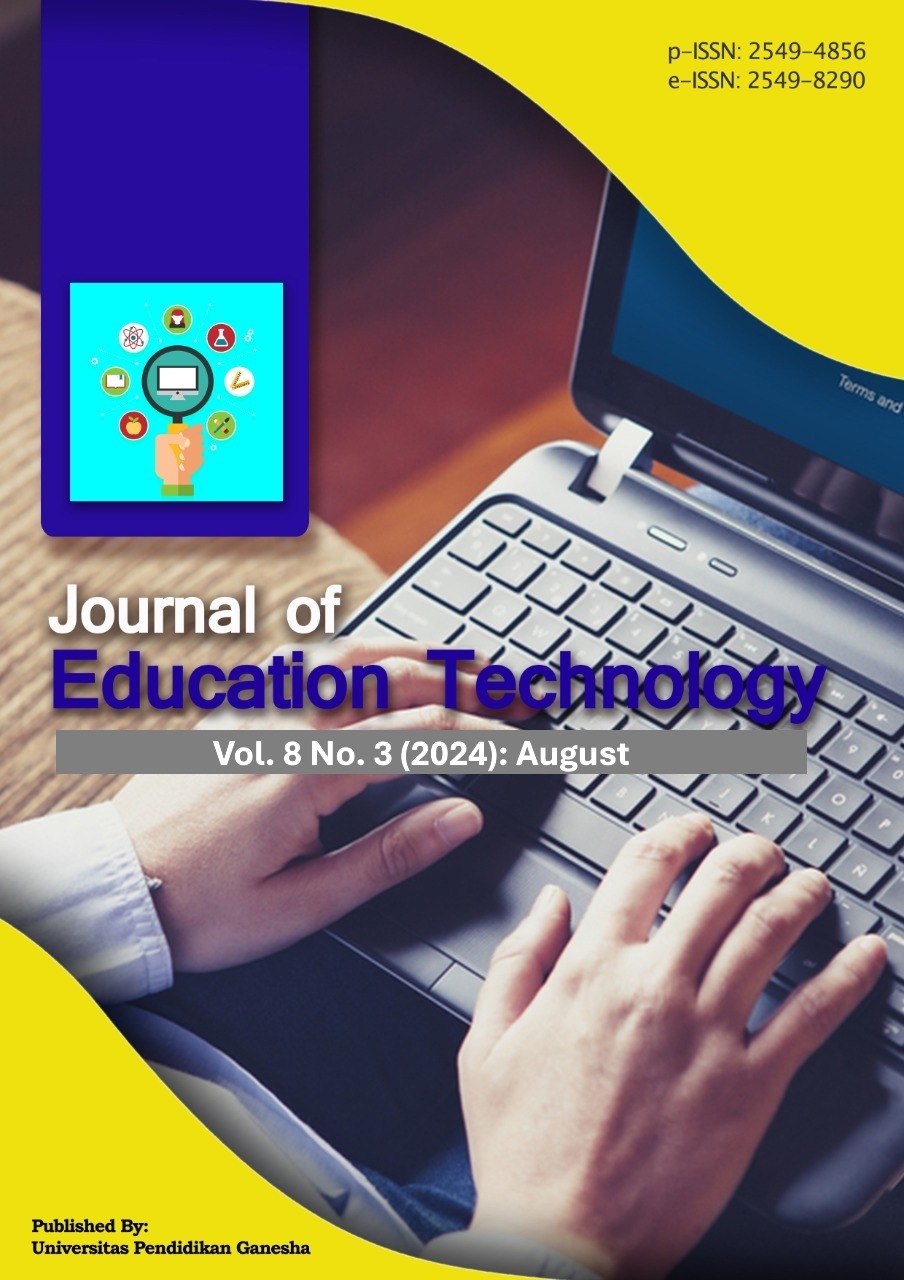Optimizing Feedback for Elementary Students Through Structured SMART-Based Assessment Tools
DOI:
https://doi.org/10.23887/jet.v1i1.91532Keywords:
SMART, Feedback, AssessmentAbstract
The provision of optimal feedback to elementary school students often lacks effectiveness due to the absence of structured assessment instruments. This study aims to develop a SMART-based (Specific, Measurable, Achievable, Relevant, Time-bound) non-test assessment instrument that is valid, practical, and effective in supporting feedback optimization. The research employed a descriptive quantitative method with a Research and Development (R&D) approach. The trial subjects included fourth-grade homeroom teachers and fourth-grade elementary students. Instrument validity was assessed using Gregory's calculation theory, while practicality was evaluated based on field implementation. The instrument integrates SMART principles to ensure its measurability in providing feedback that is specific, relevant, and aligned with students' needs. The findings indicate that the instrument has linguistic, content, and design validity, categorized as "Highly Valid." It was also deemed practical by teachers in its application, proving effective for use in the learning process. In conclusion, the SMART-based non-test assessment instrument can assist teachers in delivering optimal feedback, supporting the achievement of learning objectives, and is suitable for sustainable implementation.
Published
How to Cite
Issue
Section
License
Copyright (c) 2024 Kadek Intan Dwi Lestari, Ni Made Dainivitri Sinta Sari

This work is licensed under a Creative Commons Attribution-ShareAlike 4.0 International License.
Authors who publish with the Journal of Education Technology agree to the following terms:
- Authors retain copyright and grant the journal the right of first publication with the work simultaneously licensed under a Creative Commons Attribution License (CC BY-SA 4.0) that allows others to share the work with an acknowledgment of the work's authorship and initial publication in this journal.
- Authors are able to enter into separate, additional contractual arrangements for the non-exclusive distribution of the journal's published version of the work (e.g., post it to an institutional repository or publish it in a book), with an acknowledgment of its initial publication in this journal.
- Authors are permitted and encouraged to post their work online (e.g., in institutional repositories or on their website) prior to and during the submission process, as it can lead to productive exchanges, as well as earlier and greater citation of published work. (See The Effect of Open Access)
















